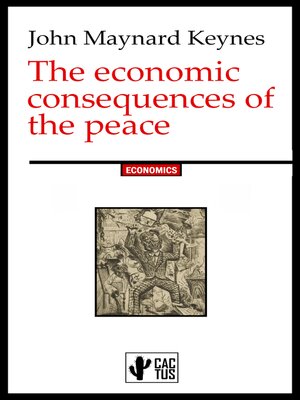
Sign up to save your library
With an OverDrive account, you can save your favorite libraries for at-a-glance information about availability. Find out more about OverDrive accounts.
Find this title in Libby, the library reading app by OverDrive.



Search for a digital library with this title
Title found at these libraries:
| Library Name | Distance |
|---|---|
| Loading... |
More than one hundred years have passed since, in late 1919 - a few months after the signing of the Treaty of Versailles - John Maynard Keynes published The Economic Consequences of the Peace. The author, who had participated in the negotiations as a British representative, denounced the harshness and meaninglessness of the "peace" imposed on defeated Germany. The book was widely circulated, and still remains in the memory of educated people today. Keynes did not know, of course, the future course of European history. But many later read his book as a premonition: the peace of Versailles was interpreted as the germ of revanchism, Nazism and World War II. Rereading the book today, reliving the temper of a century ago, helps us to think about two issues that are as urgent and alive as ever: the situation of Europe and populism worldwide.







